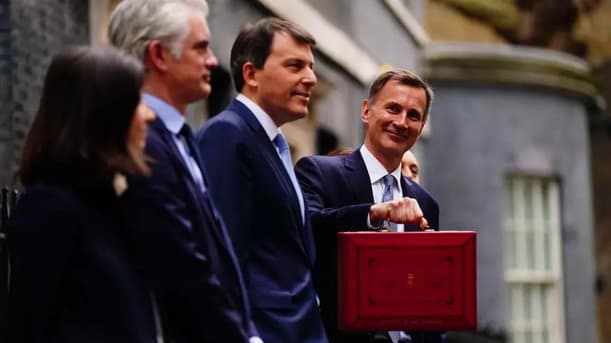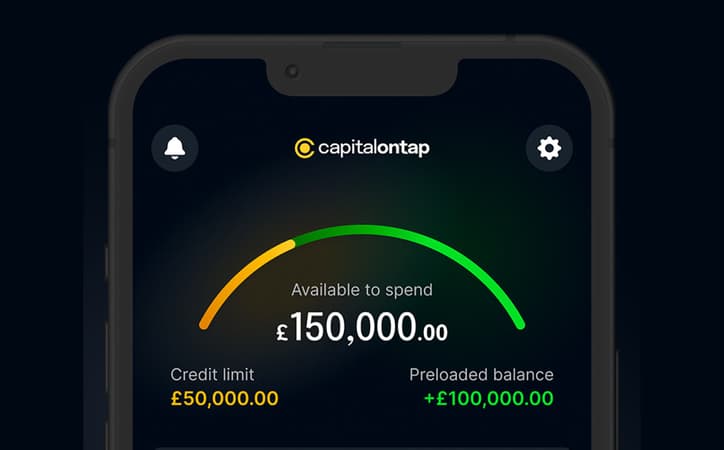The UK Chancellor, Jeremy Hunt, announced this year’s Spring Budget this month and it contains some updates you’ll want to be aware of as you prepare for the upcoming tax year.
The year runs from 6 April 2024 - 5 April 2025 and there are a few tax breaks and adjustments that could benefit your business. Here’s what you need to know:
VAT registration threshold increase
The VAT registration threshold has risen from £85,000 to £90,000 turnover. Here’s an example of how this might help your business:
Say you’re a small business that sells handmade ceramics that turns over £88,000 a year. With the previous VAT threshold of £85,000 you would have been required to register for VAT, which would have added additional admin and compliance obligations for you.
However with the new threshold of £90,000 your business falls below, meaning you don’t need to register. But why is this useful?
- Reduced admin: Registering for VAT involves keeping detailed records, filing returns, and making sure you understand VAT calculations and reporting. This should save you a significant amount of time and effort, which you can put into your business instead.
- Cash flow improvement: When you’re registered for VAT, you’re essentially responsible for collecting VAT from your customers on behalf of the government. By not having to register, you can keep the entirety of your revenue, improving cash flow and working capital.
- Pricing flexibility: Businesses that are not VAT-registered can offer their products or services at more competitive prices since they don't have to add VAT to their sales. This can give you an advantage over larger, VAT-registered competitors, especially if your target customers are price-sensitive.
- Simplified accounting: Not having to account for VAT can simplify your accounting, reducing the time and effort required for maintaining financial records and preparing accounts.
Tax cut for self-employed
In the Budget, the chancellor delivered some good news for those who are self-employed or sole traders. National Insurance contributions are being cut from 9% down to just 6%. This follows a previous 1% cut announced in the Autumn Statement.
According to the chancellor's figures, this 3 percentage point reduction in our National Insurance rate, along with no longer having to pay the Class 2 flat rate, could save the average self-employed person around £650 per year on their tax bill.
Alcohol and fuel duty freezes
If your business involves hospitality, transportation or relies heavily on vehicle usage, you'll benefit from the new measures.
The chancellor has extended the freeze on alcohol duty until February 1, 2025, which means a 2p reduction on the average price of a pint of beer - a move that's expected to benefit around 38,000 pubs across the UK.
On the fuel front, the government has decided to extend the existing 5p cut and cancel the planned inflation increase for another 12 months, marking the 14th consecutive year of a fuel duty freeze. This extension could save the average car driver £50 a year, providing much-needed relief for small business owners who frequently work with vans or cars amid the ongoing cost of living crisis and recent spikes in fuel prices.
Recovery Loan Scheme extended and renamed Growth Guarantee Scheme
The Recovery Loan Scheme - designed to help pandemic-impacted businesses secure loans from banks - has been extended until March 2026 and renamed the Growth Guarantee Fund. It offers a 70% government guarantee on loans up to £2m.
Tax relief for investment
To encourage businesses to invest and grow, there are now better tax breaks for buying equipment and machinery. The new "full expensing" scheme gives 100% corporation tax relief on these kinds of capital expenditures.
Support for specific sectors
Businesses in automotive, creative industries, and more could be eligible for additional investment funds and tax credits:
- 40% business rates relief for 10 years for eligible film studios in England
- New 40% UK Independent Film Tax Credit
- 5% increase and removal of 80% cap on visual effects costs credit
- Permanent tax relief extension for theatres, museums, galleries
- £26m for National Theatre infrastructure upgrades
Child benefits threshold increased
On top of the business-related updates, the earnings threshold for receiving full child benefits has been raised from £50,000 to £60,000.
Previously, families lost some or all of their child benefit payments if one parent earned over £50,000. But this was seen as unfair - a household with two parents each earning £49,000 (so £98,000 combined) kept all their child benefits, while a single £50,000 earner faced losing them.
The new £60,000 threshold, along with the taper rate increasing from £60-80k, will mean more higher-earning families can keep this financial support. And from 2026, the system will look at total household income rather than individual salaries, making it even fairer.
Nearly half a million families will gain an average of £1,260 in 2024/25 from this change, says the government.
You might be thinking "That's nice for families, but what's it got to do with my business?" But there’s good reason for business owners to take note:
- If you employ parents, reducing money worries could boost their morale, productivity and likelihood to stick around.
- If you're a sole trader or partner earning decent money, you might benefit from these changes yourself!
Any policies that relieve financial strain on employees' families can pay off for small firms through a happier, more productive and loyal workforce.
Views on the Spring Budget
"The Spring Budget contained some welcome measures for small businesses grappling with rising costs," said Damian Brychcy, CEO of Capital on Tap. "The VAT threshold increase and National Insurance cuts will provide cash flow relief, while freezes on alcohol and fuel duty take a bit of pressure off hospitality and transport firms."
"However, we also heard from many of our customers hoping for more substantial support and action to drive growth amid the challenging economic climate," Brychcy added. "Small businesses are the backbone of the UK economy, so it's crucial they receive targeted assistance to survive and thrive."
The bottom line
As you prepare for the upcoming tax year, take some time to understand how you can capitalise on any new rates or relief. And don't go it alone - work closely with an accountant to ensure you're maximising the tax benefits available to your small business.
This does not constitute financial or tax advice. Please consult an accountant or financial advisor if you would like more information.











